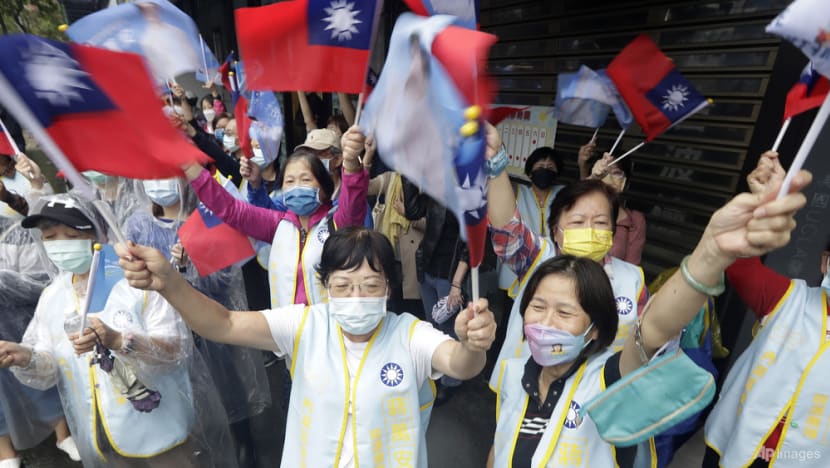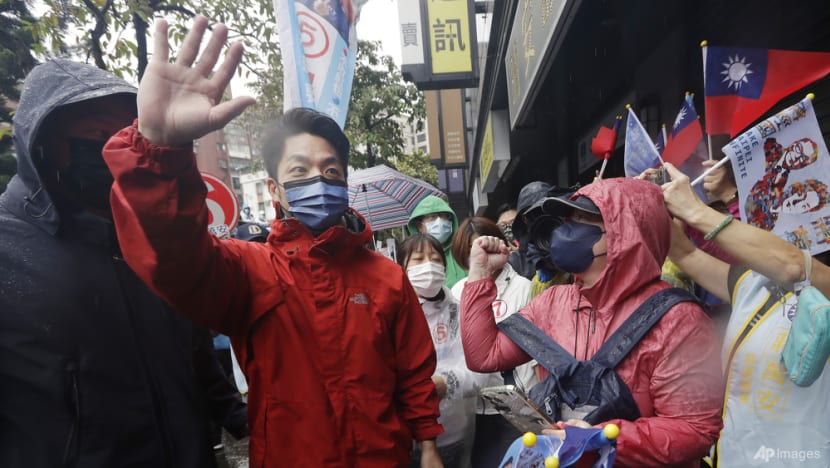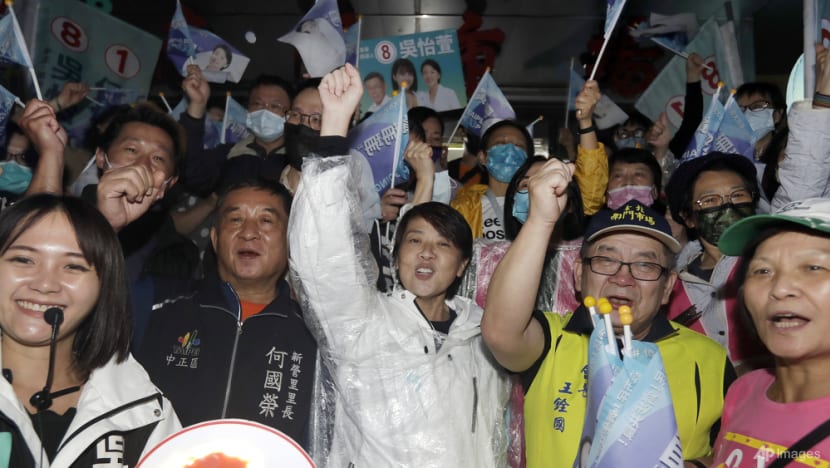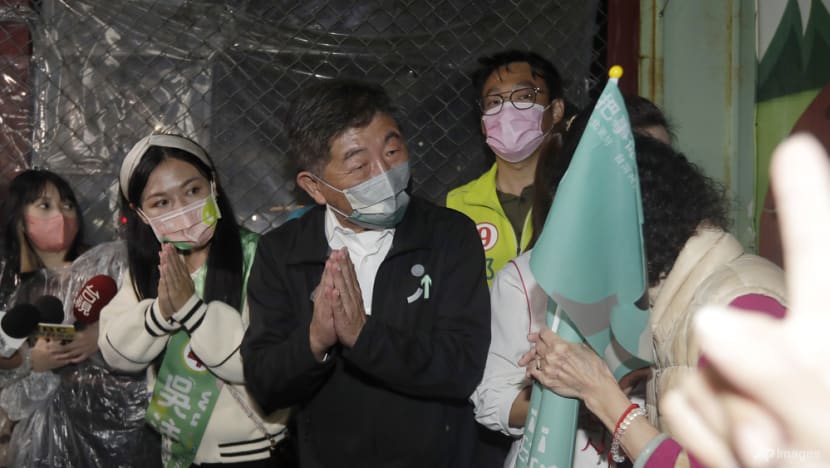Taiwan’s ruling Democratic Progressive Party likely to face defeat at local elections: Observers
Various polls have shown that the ruling Democratic Progressive Party could lose in more than half of the 22 counties and cities up for grabs.

TAIPEI: Taiwan’s ruling Democratic Progressive Party (DPP) is likely to face a major defeat in Saturday’s (Nov 26) local elections.
Various polls so far have shown that the DPP could lose in more than half of the 22 counties and cities up for grabs, with observers largely attributing it to public discontent towards the DPP administration.
The ruling party suffered a big defeat at the 2018 local election, ending up winning in just six counties and cities out of the 22 available. And history is likely to repeat itself for this election, largely due to public discontent towards the DPP government’s domestic policies.
More than half of Taiwanese are unhappy with the way it handled its fight against the COVID-19 pandemic, according to various polls. A slowing economy has also eroded voters' confidence in the government.
“The economic environment is bad. It’s not just the impact from COVID-19,” said Mr Andrew Yang, secretary general of the Chinese Council of Advanced Policy Studies (CAPS) think tank.
“If the government cannot stabilise the economy or provide some hope for future growth, then it is not good for the livelihoods of ordinary citizens.”
Taiwan’s economic growth this year is expected to fall to 3.76 per cent, nearly half of last year’s 6.57 per cent growth, due to slowing global demand and inflationary pressures.
TAIPEI MAYORSHIP RACE CRUCIAL FOR PRESIDENCY BID
The Taipei mayorship, a key race to watch in the local elections, is an important stage for politicians to stake their claim to Taiwan's presidency.
Former Taiwanese presidents Ma Ying-jeou and Chen Shui-bian both helmed the Taipei mayorship before taking the island's top job.
One strong contender for Taipei mayor is Kuomintang (KMT) candidate Chiang Wan-an, a rising star with a legacy to follow.
The 43-year-old is the great-grandson of former Taiwanese president Chiang Kai-shek, who led the party for five decades. His grandfather, Chiang Ching-Kuo, is also a former president.
But his family name has been a topic of debate by rival politicians.
Mr Chiang, a corporate lawyer in the United States before returning in 2013, was elected as a KMT legislator in Taipei in 2016. He quit this year to take part in the mayorship race.

Mr Chiang aims to make Taipei the next Silicon Valley, and has promised to address the capital’s ageing infrastructure and population drain.
On ties with China, he disagrees with the proposed “one country, two systems” model but supports KMT's version of the 1992 consensus.
Taipei's former deputy mayor Vivian Huang has also thrown her hat into the ring as an independent candidate, but is seen to have strong ties with the Taiwan People's Party (TPP).
The 53-year-old, a lawyer by trade, aims to build Taipei into a city that integrates the different cultures of immigrants.
If elected, Ms Huang said she hopes to bridge the differences between the pan-blue KMT and pan-green DPP political camps, and form a coalition government comprising people from different backgrounds that puts the people first.

Meanwhile, the DPP has put forward former health minister Chen Shih-chung for the Taipei mayoral election.
The 68-year-old, who became health minister in 2017, rose to prominence as the face of the government's COVID-19 response and his reputation peaked when the island boasted a strong record of keeping the virus at bay.
But that popularity has plummeted after the virus landed on Taiwan's shores, with critics accusing him of resting on his laurels.
Some observers are also unsure if his election manifesto, which focuses on social welfare policies such as long-term healthcare and boosting birth rates, is strong enough.
CAPS’ Mr Yang said: “I think he fails to deliver the (manifesto). You must have good policies. It's very important to people’s daily lives. If there aren’t any good policies, they don’t know what you can do for Taipei.”
Mr Chen is not the only DPP candidate having a hard time. Various polls have shown that more than half of the DPP candidates are trailing behind their KMT rivals.

UNCLEAR IF LOCAL POLLS WOULD AFFECT PRESIDENTIAL VOTE
Although the local elections are widely seen as a precursor to the 2024 presidential race, results can still turn out differently as shown back in 2020.
That was when President Tsai Ing-wen of the DPP won the presidential election, despite the rival KMT's landslide victory in the earlier local elections in 2018, following the implosion of the anti-government protests in Hong Kong.
Meanwhile, incumbent Taipei mayor Ko Wen-je has indicated his intent to run for the 2024 presidency.
The chairman of the TPP, widely lauded as "the third force", is the first to publicly announce his candidacy with the presidential race still two years away.
Analysts believe the outcome of Taiwan’s presidential fight would be influenced more by geopolitical forces.
This is especially after Chinese President Xi Jinping refused to renounce the use of force against Taiwan in his recent speech at the 20th Communist Party Congress.
While it is unclear how much the local election results would influence the 2024 presidential vote, a DPP defeat could be seen as a vote of no confidence in the ruling party, said observers.
“The DPP is likely to use its resources as the ruling party to its advantage. And it will continue to play the China card,” said Associate Professor Huang Kwei-bo of the National Chengchi University.
“Whether that will work depends on the development of the US-China rivalry and China’s behaviour towards Taiwan.”


















